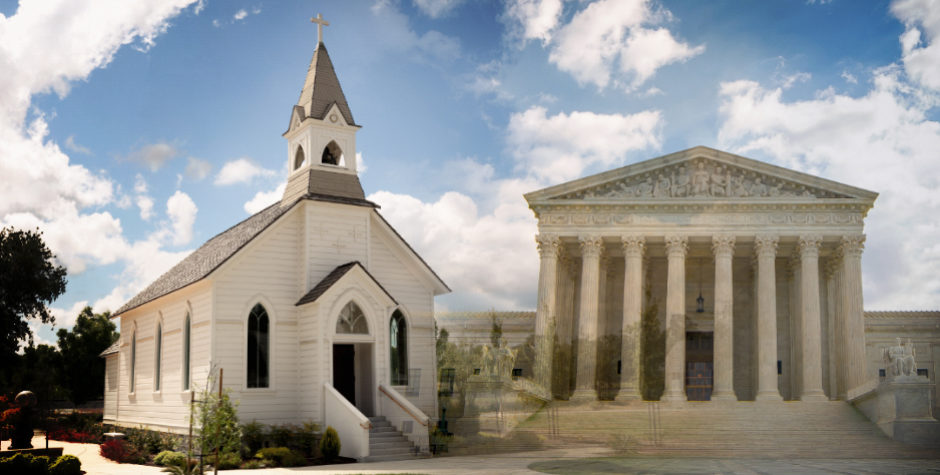The ACLJ Files Major Amicus Brief at the Supreme Court to Protect the Rights of Churches and Religious Schools
This week, the ACLJ filed an amicus brief with the United States Supreme Court, urging the Court to reverse two decisions from the Ninth Circuit Court of Appeals that severely diminished the religious liberty of churches and religious schools.
The two cases, Our Lady of Guadalupe School v. Agnes Morrissey-Berru, and St. James School v. Biel, involve the important religious liberty principle called “the ministerial exception.” Broader than its name implies, the ministerial exception protects churches and other religious organizations from government interference in decisions about who leads worship or teaches religion. Where the ministerial exception applies, religious organizations’ personnel choices are not subject to state and federal anti-discrimination laws. Thus, for example, the Catholic Church’s doctrine requiring that priests be male cannot be challenged in court as sex-discrimination.
Dating back to our Nation’s founding, the ministerial exception is really a religious autonomy principle grounded in both the Free Exercise Clause and the Establishment Clause of the First Amendment. It was born of the Pilgrims’ and other early Colonists’ desire to worship as they saw fit and select religious leaders of their own choosing without interference from the English government. Whether Jewish, Methodist, Baptist, Lutheran, or Muslim, religious organizations can choose their own leaders and teachers, even if such choices might otherwise violate an anti-discrimination law.
In Hosanna-Tabor Evangelical Lutheran Church and Sch. v. E.E.O.C., the Supreme Court held that the ministerial exception applied to religious schools. (We filed an amicus brief at the Supreme Court in this case and won a similar case applying the Supreme Court precedent in the court of appeals.) Just as churches could choose “ministers” who preach, lead worship, and perform other religious functions, religious schools could choose which teachers impart the faith to their students without the government second-guessing their decisions.
After Hosanna-Tabor, the lower courts were largely united in how they interpreted Hosanna-Tabor. That is, until the Ninth Circuit decided that it could substitute its own views about which teachers actually taught the schools’ religious values. Not only did the notoriously liberal Ninth Circuit reject the Supreme Court’s guidance in Hosanna-Tabor, the court also deviated from every other Court of Appeals that has decided similar cases. The damage to religious liberty for religious schools in the nine states within the Ninth Circuit’s jurisdiction was substantial.
In our amicus brief, we argue that the Ninth Circuit's second-guessing of the schools’ assessments about whether the teachers were ministers was wrong because it violated the religious autonomy principle. If religious autonomy is to be safeguarded, courts must defer to the schools’ good faith judgment that a teacher who teaches religious values and precepts qualifies for the ministerial exception. The government may not interfere in religious schools’ decisions either to hire or to terminate its teachers.
We argued further that:
In light of this Court’s other deference cases, there can be no principled basis for denying substantial deference to a religious school’s good faith determination about which of its teachers possess the character and conduct to be credible messengers of its religious beliefs. Withholding such deference would effectively impose unique disabilities on religious organizations. Amicus accordingly urges this Court to hold that the religious autonomy principle mandates robust judicial deference to a religious organization’s determination about which employees qualify as ministers.
In filing this amicus brief, we are continuing the fight to protect the freedom of religious organizations to select leaders and employees free from government interference. Oral argument in the case is scheduled for April 1, 2020.
